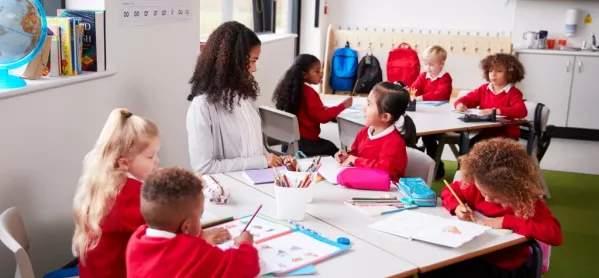For some, this Monday represents the start of the next phase of returning to school, with year groups coming back in to join new “bubbles” (who started calling them that?).
For others, that great unknown still lies in the weeks ahead. Some have already started down that road, and we can share something of what we’ve learned from the first few days.
For a start, in every school I know that’s opened, the description of those first few days has often included the word “smoothly”.
Coronavirus: The challenge of reopening schools
After hours of planning, and often re-planning to reflect the constant changes in guidance, it turns out that school staff are very good at organising large-scale school events - no surprise there.
At my own school, perhaps the only real shock was that our carefully planned one-way system seemed almost redundant, because our staggering of arrivals had been so effective.
Once everyone was in through the doors, it was actually a pleasure to begin to feel like a school again.
True, it was like no other school day, but the place was alive with children’s voices, classrooms that had lain empty for weeks were once again in use, and even the playground noise at breaktimes had a familiar sound to it, despite the significantly reduced numbers.
The joy of being back
But perhaps the biggest surprise of all is what a joy it has been to get back and teach.
Of course, that’s why we do the job, but there’s no denying that one of the challenges of the new arrangements has been the separation of classes, dividing of friends, and reallocation of staff.
The Year 4 teacher suddenly finding themselves with half a Year 6 group. For the NQT suddenly thrown into a mixed group where he knows only a handful of the pupils, it was always going to be daunting.
But then, as it began, instinct kicked in, conversations started and life was breathed back into the school.
By the middle of the week, far from bemoaning being back, or worrying about the drip, drip of arrivals, teachers were wishing this was truly the new normal we keep hearing about.
Of course, we’d have loved to have been back with our own classes and in familiar routines, but something else has made a huge impact: having a maximum of 15 pupils in a class is transformative.
Smaller class sizes are a revelation
Now, I’m not the sort of teacher who has always argued for smaller classes. Having taught classes from 24 to 34, I find the evidence reasonably credible that most teachers don’t change their practice enough with a variation of class size for it to make a difference.
In fact, the Education Endowment Foundation says that for reducing class sizes to really have any impact, you need to get classes below 20 pupils or ideally 15.
Of course, the EEF then concludes that this is an expensive strategy - and it probably never imagined we’d have an opportunity like this to test out the theory.
But as one of my teachers said this week: “With a class of 14, you can’t help but move them all on”.
Like in many other schools, our small groups are made up of a cross-section of abilities, but when the overall numbers are reduced so significantly, you suddenly find yourself with so much more capacity.
I’ve no idea how long this situation will be with us, nor what government plans might look like in the longer term, but I can’t help but wonder whether class sizes of 15 might be a greater success than we first thought.
Perhaps that might give politicians pause for thought about the future of education?
Maybe this is the new “new normal” we should strive for?
Michael Tidd is headteacher at East Preston Junior School in West Sussex. He tweets @MichaelT1979





